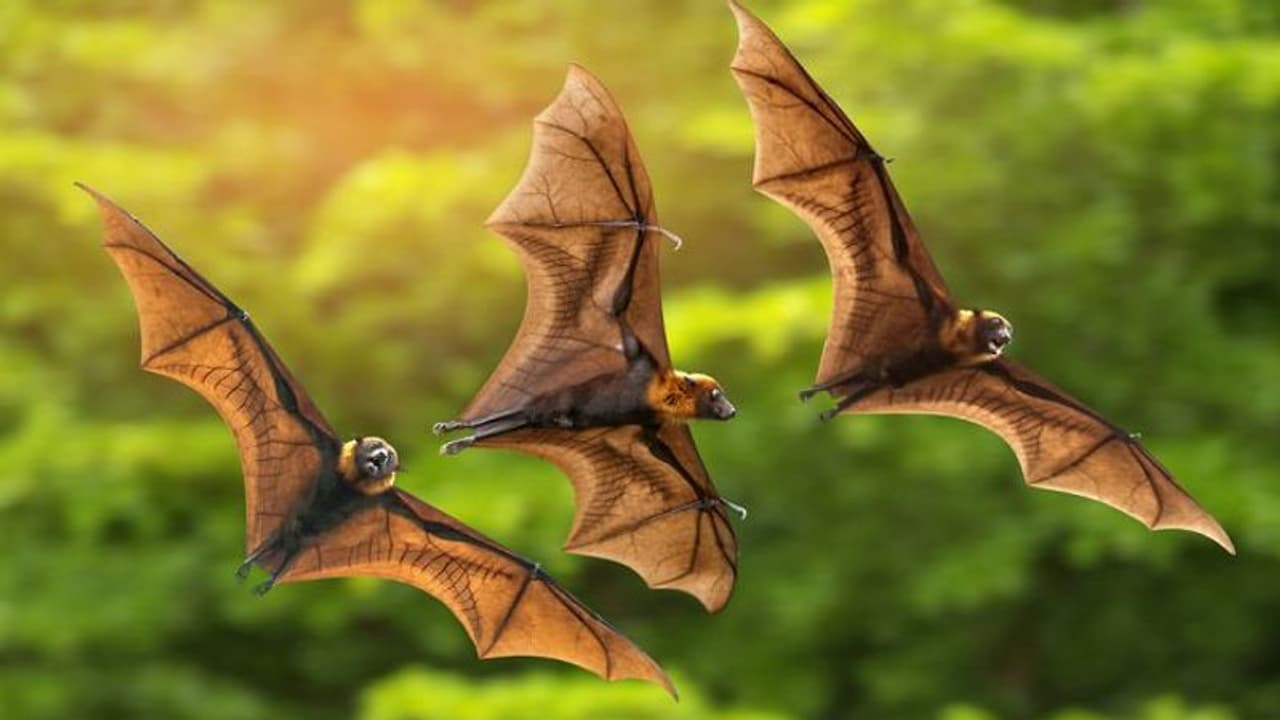Bats are considered to be the natural reservoir for many viruses, of which some can potentially infect humans. Many viruses have had their origin in bat species over the last two decades.
According to the study published in the Indian Journal of Medical Research, there is no evidence or research to claim that these bat coronaviruses can cause disease in humans, said Dr Pragya D Yadav, Scientist at the National Institute of Virology (NIV), Pune and also the first author of study.
Twenty-five bats of Rousettus and Pteropus species from Kerala, Himachal Pradesh, Puducherry and Tamil Nadu were found positive for BtCoV.
"These bat coronaviruses have no relation with SARS-CoV2 responsible for the COVID-19 pandemic," Yadav said, adding that Pteropus bat species were earlier found positive for Nipah virus in 2018 and 2019 in Kerala.
Also read: PM Modi's 7 steps to tackle coronavirus
"Bats are considered to be the natural reservoir for many viruses, of which some are potential human pathogens. In India, an association of Pteropus medius bats with the Nipah virus was reported in the past. It is suspected that the recently emerged severe acute respiratory syndrome coronavirus 2 (SARS-CoV-2) also has its association with bats," the objective of the study titled 'Detection of coronaviruses in Pteropus and Rousettus species of bats from different states of India' stated.
"Although CoVs in the subfamily coronavirinae do not usually produce clinical symptoms in their natural hosts (bats), accidental transmission of these viruses to humans and other animals may result in respiratory, enteric, hepatic or neurologic diseases of variable severity. It is still not understood as to why only certain CoVs can infect people," the study said.
The scientists stressed on the need for proactive surveillance of zoonotic infections in bats.
Also read: Gujarat MLA tests COVID-19 positive
The detection and identification of such viruses from bats also recommends cross-sectional antibody surveys (human and domestic animals) in localities where the viruses have been detected.
Similarly, if the epidemiological situation demands, evidence-based surveillance should also be conducted, the study said while emphasing on the need for developing strong mechanisms for working jointly with various stakeholders such as wildlife, poultry, animal husbandry and human health departments.
"In conclusion, our study showed detection of bat CoVs in two species of Indian bats. Continuous active surveillance is required to identify the emerging novel viruses with epidemic potential," Dr Yadav said.
Elaborating on the study, Dr Yadav said throat and rectal swab samples of two bat species --Rousettus and Pteropus from seven states were screened for the bat coronavirus during which the representative samples collected from Kerala, Himachal Pradesh, Puducherry and Tamil Nadu tested positive while those from Karnataka, Chandigarh, Punjab, Telangana, Gujarat and Odisha came out negative.
The reverse-transcription polymerase chain reaction (RT-PCR) tests and sequencing were used for the confirmation of the findings.
"This is an ongoing study to understand the prevalence of the Nipah virus in bats," she said.
With PTI Inputs
Add Asianet Newsable as a Preferred Source

